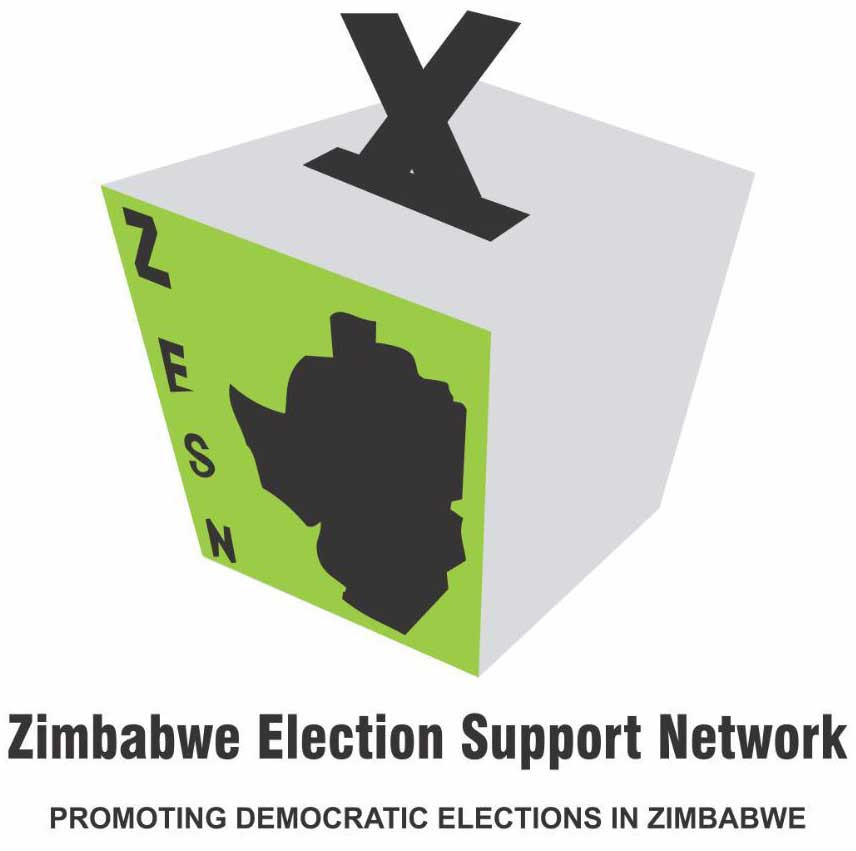
ELECTION watchdog Zimbabwe Election Support Network (Zesn) has called for the amendment of section 158 of the Constitution to ensure that elections dates are fixed as opposed to the current set up, where the incumbent determines polling dates.
Section 144(1) empowers the President to fix dates for elections.
According to results of a study conducted by Zesn titled Should Zimbabwe dehumanise its elections?, the election watchdog said while Zimbabwe should retain its harmonised electoral system of presidential, parliamentary and local government polls, there was need to amend the Constitution to ensure the date is fixed.
Critics have in the past argued that the constitutional clause which empowers the incumbent to fix the date gives them an edge over their opponents.
“The electoral problems that Zimbabwe face are not because of the synchronisation of elections. In fact, section 158 of the Constitution on timing of elections can be amended to entrench synchronised elections through providing a fixed date to allow for procedural certainty for all contestants and not advantage the incumbent [who most of the times is also a contestant] with a constitutional prerogative to fix the date,” the study read.
President Emmerson Mnangagwa last year pronounced the election dates despite also participating in the election.
“For example, Sweden is an enduring and exemplary democracy and holds its parliamentary (Riksdag), county and municipal councils on a fixed date that is every four years, on the second Sunday in September.
“The United States also has a fixed date for the federal election that occurs after every four years on the first Tuesday after November 1 since 1845 and so does Zambia, whose election date is on a second Thursday of August every five years,” the election watchdog said.
- Fast-track delimitation, Zec urged
- Letters: Steep increase in nomination fees has a bearing on democracy
- Watchdogs bemoan falling media freedoms ahead of elections
- Zec delimitation process found wanting
Keep Reading
Zesn said there was, therefore, no need for Zimbabwe to amend the Constitution, Local Government Act and the Electoral Act to replace a system which is not broken with regards to holding harmonised elections.
“Even though some argue that a harmonised elections negatively affects the profile of local elections, in reality, the introduction of synchronised local government elections in 2008 in Zimbabwe has increased the competitiveness and consequently the profile of local elections,” the electoral watchdog said.
“The profile of local elections can further be enhanced by implementing devolution as enshrined in Chapter 14 sections 264-279 of the Zimbabwean Constitution to allow for principal decisions to be made at the local level than at the national level and by intensifying civic education rather than merely having local-only elections.
“In addition, the argument that synchronised elections overwhelm voters and provide administrative and logistical challenges for electoral bodies is disputed by comparative evidence.”
Zimbabwe adopted the harmonised election system on October 30, 2007 and entrenched it in the 2013 Constitution of Zimbabwe Amendment (No 20) Act.
A harmonised election is an election in which voters cast ballots for different political offices, namely the President, Members of Parliament and councillors, at the same time.
Globally, these are commonly referred to as simultaneous or synchronised elections.










